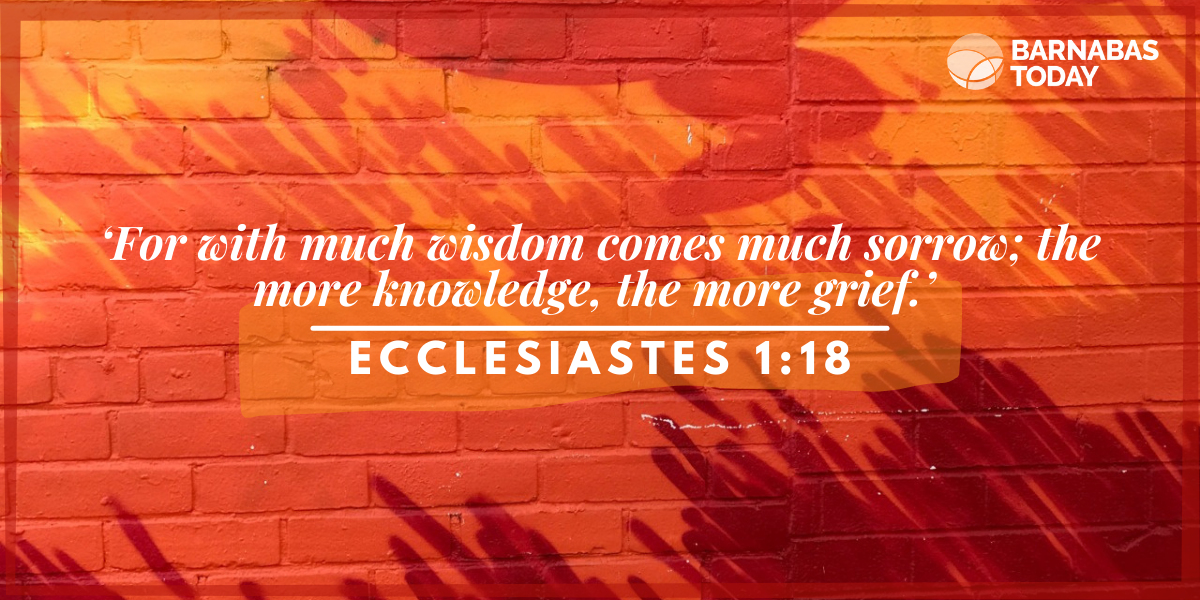
‘For with much wisdom comes much sorrow; the more knowledge, the more grief.’ (v18) Ecclesiastes 1:12–18
Knowledge and wisdom are different. Knowledge is the understanding we gain from study and experience; wisdom is learning the skills to put that knowledge to work. It is wisdom that guides us in making good decisions from our knowledge.
As disciples, we need both. Our knowledge of God gives us an understanding of who God is and what God requires, whilst wisdom enables us to apply it to our lives. Indeed, most people want to know how God works in practice, rather than further facts about God.
Jayne knows God loves her; the Bible says so. But how can she make sense of that love when her body is full of pain? The acute nature of that pain distracts her from settling in for a Bible study; she struggles to stay comfortable in any one position for more than ten minutes.
Instantly, many of the normal ways we engage with God are placed beyond her reach. Yet, her knowledge of God’s abiding presence has given her the wisdom to find ways within her physical limitations to encounter God in prayer. She has found forms of prayer that operate effectively within the persistent pressure and sorrow of her discomfort.
Jayne led many to find Christ in the wilderness of chronic pain. A space that drew those who similarly battle daily with their pain, yet also love and serve God. We can be grateful for the diversity of knowledge, experience and rich wisdom throughout God’s Church.

RELATED SCRIPTURE TO CONSIDER: 2 Chron. 20:1–17; Eccl. 1:1–11; Matt. 5:1–13; 2 Cor. 6:1–10.
AN ACTION TO TAKE: Acknowledge what sorrows are troubling you. How might you discover God within such sorrows? Are you able to worship God within the storm?
A PRAYER TO MAKE: ‘Lord, help me to turn my gaze from the source of my sorrow and direct it towards You. Amen.’









